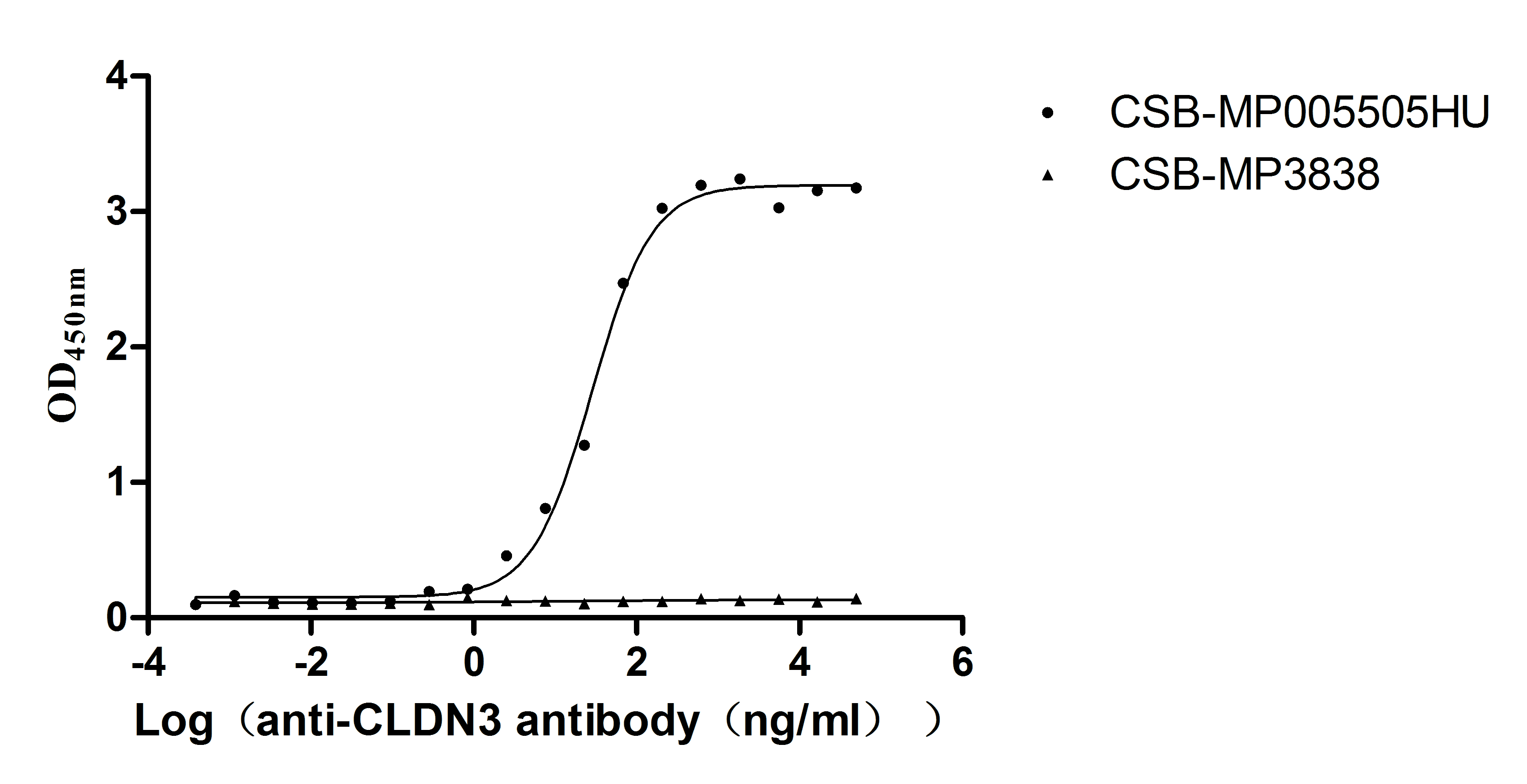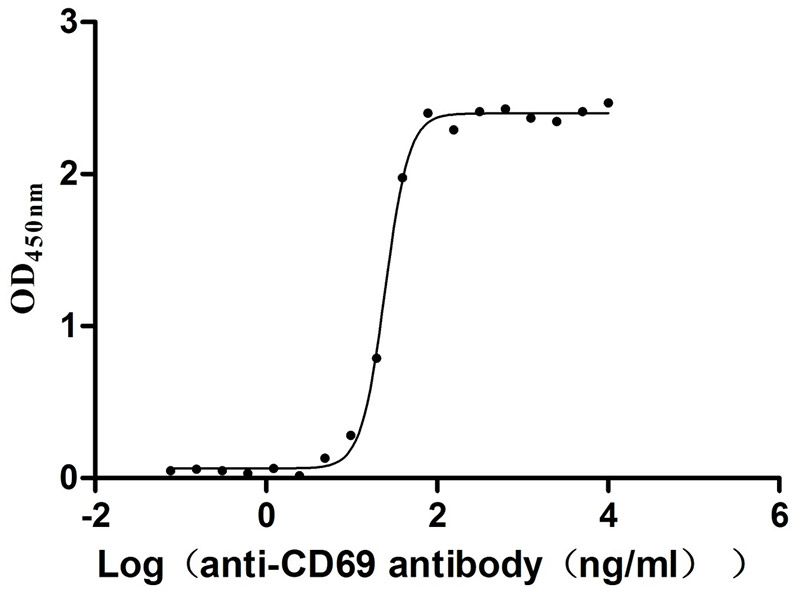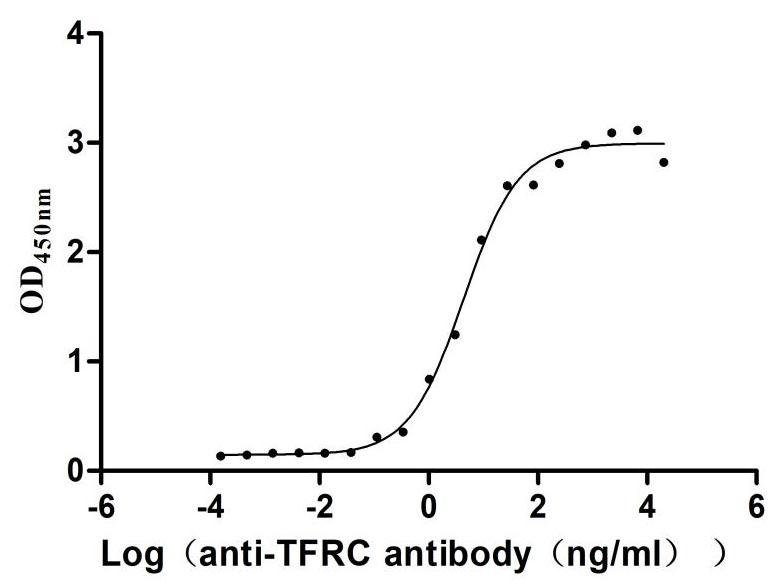Recombinant Mouse SH3 and PX domain-containing protein 2A (Sh3pxd2a), partial
-
中文名称:小鼠Sh3pxd2a重组蛋白
-
货号:CSB-YP021239MO
-
规格:
-
来源:Yeast
-
其他:
-
中文名称:小鼠Sh3pxd2a重组蛋白
-
货号:CSB-EP021239MO
-
规格:
-
来源:E.coli
-
其他:
-
中文名称:小鼠Sh3pxd2a重组蛋白
-
货号:CSB-EP021239MO-B
-
规格:
-
来源:E.coli
-
共轭:Avi-tag Biotinylated
E. coli biotin ligase (BirA) is highly specific in covalently attaching biotin to the 15 amino acid AviTag peptide. This recombinant protein was biotinylated in vivo by AviTag-BirA technology, which method is BriA catalyzes amide linkage between the biotin and the specific lysine of the AviTag.
-
其他:
-
中文名称:小鼠Sh3pxd2a重组蛋白
-
货号:CSB-BP021239MO
-
规格:
-
来源:Baculovirus
-
其他:
-
中文名称:小鼠Sh3pxd2a重组蛋白
-
货号:CSB-MP021239MO
-
规格:
-
来源:Mammalian cell
-
其他:
产品详情
-
纯度:>85% (SDS-PAGE)
-
基因名:Sh3pxd2a
-
Uniprot No.:
-
别名:Sh3pxd2a; Fish; Sh3md1; Tks5; SH3 and PX domain-containing protein 2A; Five SH3 domain-containing protein; SH3 multiple domains protein 1; Tyrosine kinase substrate with five SH3 domains
-
种属:Mus musculus (Mouse)
-
蛋白长度:Partial
-
蛋白标签:Tag type will be determined during the manufacturing process.
The tag type will be determined during production process. If you have specified tag type, please tell us and we will develop the specified tag preferentially. -
产品提供形式:Lyophilized powder
Note: We will preferentially ship the format that we have in stock, however, if you have any special requirement for the format, please remark your requirement when placing the order, we will prepare according to your demand. -
复溶:We recommend that this vial be briefly centrifuged prior to opening to bring the contents to the bottom. Please reconstitute protein in deionized sterile water to a concentration of 0.1-1.0 mg/mL.We recommend to add 5-50% of glycerol (final concentration) and aliquot for long-term storage at -20℃/-80℃. Our default final concentration of glycerol is 50%. Customers could use it as reference.
-
储存条件:Store at -20°C/-80°C upon receipt, aliquoting is necessary for mutiple use. Avoid repeated freeze-thaw cycles.
-
保质期:The shelf life is related to many factors, storage state, buffer ingredients, storage temperature and the stability of the protein itself.
Generally, the shelf life of liquid form is 6 months at -20°C/-80°C. The shelf life of lyophilized form is 12 months at -20°C/-80°C. -
货期:Delivery time may differ from different purchasing way or location, please kindly consult your local distributors for specific delivery time.Note: All of our proteins are default shipped with normal blue ice packs, if you request to ship with dry ice, please communicate with us in advance and extra fees will be charged.
-
注意事项:Repeated freezing and thawing is not recommended. Store working aliquots at 4°C for up to one week.
-
Datasheet :Please contact us to get it.
靶点详情
-
功能:Adapter protein involved in invadopodia and podosome formation, extracellular matrix degradation and invasiveness of some cancer cells. Binds matrix metalloproteinases (ADAMs), NADPH oxidases (NOXs) and phosphoinositides. Acts as an organizer protein that allows NOX1- or NOX3-dependent reactive oxygen species (ROS) generation and ROS localization. In association with ADAM12, mediates the neurotoxic effect of amyloid-beta peptide.
-
基因功能参考文献:
- Suggest the importance of Tks adaptor proteins in melanoma growth and metastasis in vivo is likely via functional invadopodia formation. PMID: 27802184
- This is the first study that identifies a new Rab40b-Tks5- and miR-204-dependent invadopodia transport pathway that regulates MMP2 and MMP9 secretion, and extracellular matrix remodeling during cancer progression. PMID: 27909076
- Results show that TKS5 is highly expressed in many cancer types with strong correlation with increased metastatic events and a poorer prognosis suggesting a clinical importance. PMID: 24993883
- Signaling leading to Tks5 activation in peritoneal mesothelial cells may be a suitable therapeutic target for prevention of peritoneal carcinomatosis. PMID: 25088196
- Tks5 undergoes an isoform switch during metastatic progression in a genetically engineered mouse model of lung adenocarcinoma PMID: 23873940
- Tks5, a master regulator of invadopodia in cancer cells, is crucial for osteoclast fusion downstream of phosphoinositide 3-kinase and Src. PMID: 22584907
- Src-Tks5 pathway is required for neural crest cell migration during embryonic development PMID: 21799874
- Examination of the initial stages of podosome formation has revealed an important role for the phosphoinositide PI(3,4)P(2) in anchoring the scaffold protein Tks5 to the plasma membrane. PMID: 18957242
- The tandem SH3A and SH3B domains of Tks5 constitute a versatile module for the implementation of isoform-specific protein-protein interactions. PMID: 19464300
- Tks5 facilitates the production of ROS necessary for invadopodia formation, and in turn ROS modulate Tks5 tyrosine phosphorylation in a positive feedback loop. PMID: 19755709
显示更多
收起更多
-
亚细胞定位:Cytoplasm. Cell projection, podosome.
-
蛋白家族:SH3PXD2 family
-
组织特异性:Widely expressed. Not found in the spleen and testis.
-
数据库链接:
Most popular with customers
-
Recombinant Human T-cell antigen CD7 (CD7), partial (Active)
Express system: Mammalian cell
Species: Homo sapiens (Human)
-
Recombinant Human Leukemia inhibitory factor (LIF) (Active)
Express system: Mammalian cell
Species: Homo sapiens (Human)
-
Recombinant Dog Angiopoietin-2 (ANGPT2) (Active)
Express system: Mammalian cell
Species: Canis lupus familiaris (Dog) (Canis familiaris)
-
Recombinant Human V-set and immunoglobulin domain-containing protein 4 (VSIG4), partial (Active)
Express system: Mammalian cell
Species: Homo sapiens (Human)
-
Recombinant Human Dickkopf-related protein 1 (DKK1) (Active)
Express system: Mammalian cell
Species: Homo sapiens (Human)
-
Recombinant Human Claudin-3 (CLDN3)-VLPs (Active)
Express system: Mammalian cell
Species: Homo sapiens (Human)
-
Recombinant Human Early activation antigen CD69 (CD69), partial (Active)
Express system: Mammalian cell
Species: Homo sapiens (Human)
-
Recombinant Human Transferrin receptor protein 1 (TFRC), partial (Active)
Express system: Mammalian cell
Species: Homo sapiens (Human)


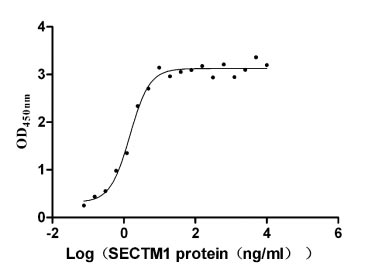
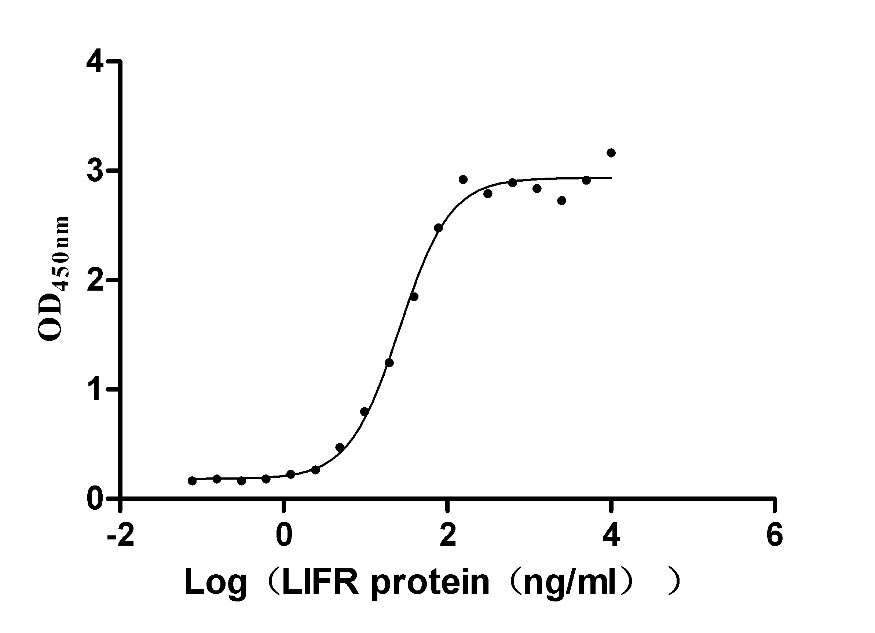
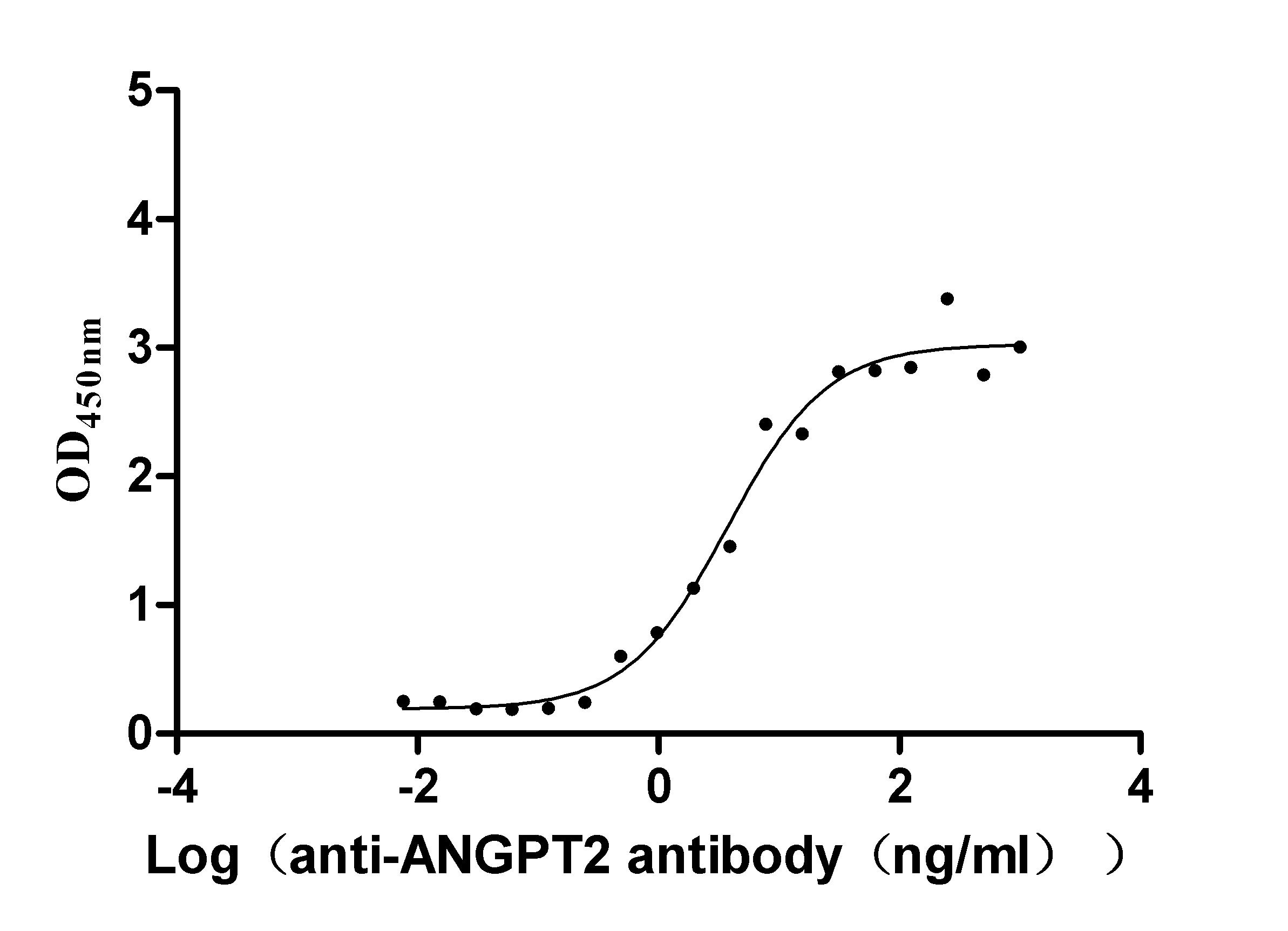
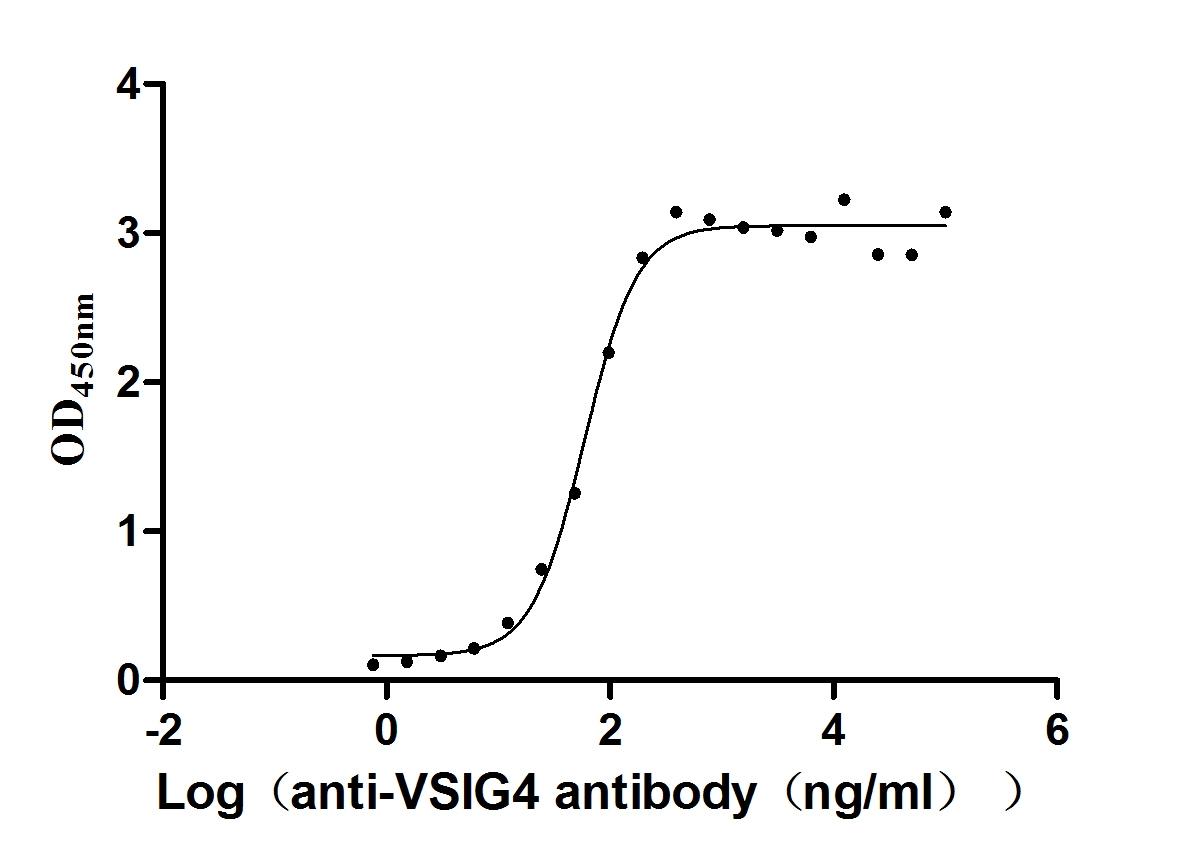
-AC1.jpg)
